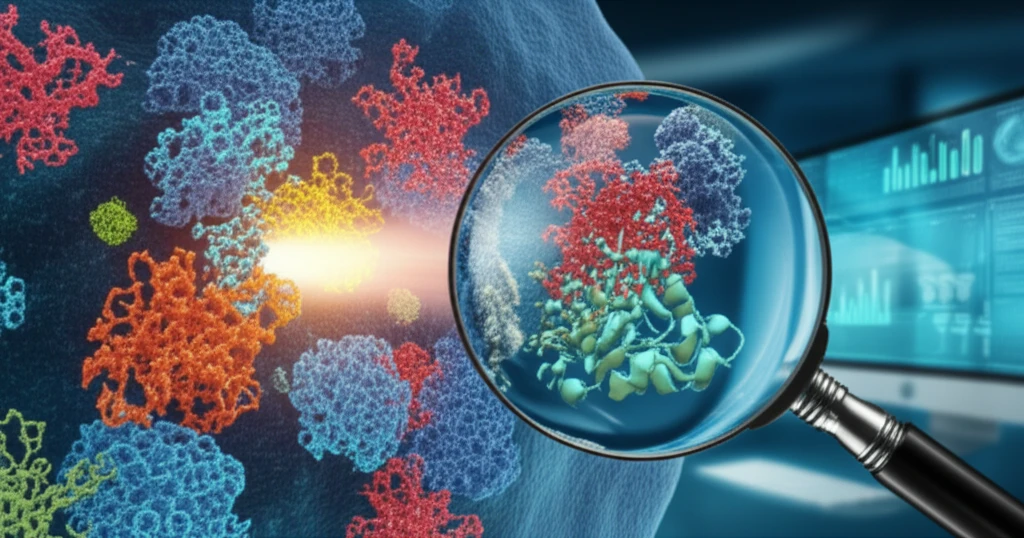
Decoding the Future of Health: How Advanced Proteomics is Revolutionizing Disease Detection and Treatment
"Unlocking the Secrets Within: Exploring the Power of Proteomics in Transforming Healthcare"
In the realm of healthcare, the quest for early and accurate disease detection is ceaseless. For decades, scientists have sought innovative methods to understand the intricate workings of the human body at a molecular level. A promising frontier in this endeavor is proteomics, the large-scale study of proteins, the workhorses of our cells. Proteins are not merely structural components; they are dynamic entities that reflect our health status, disease progression, and response to treatments.
The advent of advanced techniques such as SWATH (Sequential Window Acquisition of all Theoretical Fragment ions) mass spectrometry has significantly advanced the field. This technology allows researchers to analyze thousands of proteins simultaneously, providing a comprehensive view of the proteome – the complete set of proteins expressed by a cell, tissue, or organism. This detailed analysis offers unprecedented opportunities for early disease detection and personalized medicine.
This article delves into the groundbreaking advancements in proteomics, particularly focusing on how techniques like SWATH mass spectrometry, coupled with large peptide reference libraries, are transforming disease detection and treatment. We will explore the technical aspects, the benefits, and the potential impact of proteomics on the future of healthcare, making this complex topic accessible and engaging for a broad audience.
The Power of Proteomics: Understanding Proteins and Their Role in Health

Proteins are the fundamental building blocks and functional units of our cells. They perform a vast array of tasks, from catalyzing biochemical reactions to transporting molecules and providing structural support. Changes in protein levels or modifications to their structure can signal the presence of disease, making them valuable biomarkers. Analyzing these changes enables scientists to diagnose diseases early, monitor their progression, and tailor treatments.
- Protein Profiling for Disease Detection: Identifying unique protein patterns associated with specific diseases.
- Personalized Medicine: Using protein profiles to tailor treatments based on an individual's unique biology.
- Drug Discovery: Accelerating the identification of new drug targets and assessing drug efficacy.
- Monitoring Treatment Response: Tracking changes in protein levels to assess how well a treatment is working.
The Future is Now: Embracing the Proteomic Revolution
Proteomics is more than just a scientific field; it's a paradigm shift in healthcare. With continued advancements in technology and bioinformatics, proteomics promises to revolutionize how we detect, diagnose, and treat diseases. As researchers delve deeper into the complexities of the proteome, we can anticipate more personalized, effective, and preventative healthcare strategies, ultimately leading to healthier and longer lives for all. The insights gained from proteomics are paving the way for a future where medicine is as unique as the individual it serves.
